Brain Tech – Part 3
Adapted from the Journal of the MIT Enterprise Forum – Chicago
John Jonelis
“I must’ve walked down that alley 100 times, but for some reason something told me I shouldn’t go down there.” But the Marine dismisses the thought and carries on with his mission. Next, he gets blown up.
The soldier’s intuition tells him to avoid the alley but his observation and cognition do not. Something is happening that he cannot account for. How can we fix this picture?
.
The Speaker
Armed forces, professional athletics, and even business include crucial bursts of heightened stress and times of rapid change. Such times call for laser focus, situational awareness, and fast mental and physical reactions. We must process real-time data quickly.
New discoveries enable us to rev-up the processing power of our brains. Such training—recently used in the military—is now available to athletes, trading professionals, and business people.
The program is called PACEtm – Progressively Accelerated Cognitive Exertion. Over 2,500 individuals, from Marine Snipers, Rangers, Recon and Special Operations Forces, Pilots, Professional Athletes, Business People, and sufferers from Brain Trauma have had their lives positively changed by this training. John Kennedy developed the program and claims that 100% of those have reported significant improvement in performance. A hundred percent!

Mr. Kennedy’s comments are given before an audience of entrepreneurs, investors, and PhDs assembled at the MIT Enterprise Forum, Chicago.
.
The Challenge
Kennedy tells of his call-to-action in 2006 when his brother came back from Iraq and said, “Those IEDs are killing us.”
So he went to IED training. IED survivors accompanied him the whole time, and that motivated him in a powerful way. Meanwhile, the Marines were independently looking for a solution to the problem.
“The Marines had already mapped-out processes,” he says. “The entire kill chain—all the way from motivation to boom. And the prevent chain. Very smart people were doing this. But for every innovation they designed to protect against explosives, the enemy found a way around it. That approach was too slow.”
Up to that point, decision-making science was based on what happened in the past. In a rapidly changing environment, there may not be enough time to think through all that information.
Recalling the story of the Marine in the alley, Kennedy postulates: “If a guy in the field can think better, maybe he can avoid the explosion.”
Speeding up the Brain
What are the components of mental performance? Certainly, there’s learning and experience. According to Kennedy, Marines go through tons of training and over 900 learning objectives. But what is this phenomenon we call intuition? “It may simply be the act of processing information faster,” he says. “Everybody loves a faster computer. How can we do this for the brain?”
Physicists say it’s impossible for a Major League Baseball player to hit a fastball. Think of it: The bat swings at almost 100 mph. The ball comes at the batter at almost 100 mph. There’s no way that consciously, he can see the ball leave the pitcher’s hand and swing the bat in time to hit it. Yet batters DO hit fastballs with startling regularity. Coaches tell the batters, ‘Don’t think,’ because cognitive thought is too slow. When the ball leaves the pitcher’s hand, the subconscious takes over.
According to Kennedy, neuroscientists call this a Zombie System. If you repeat an action over and over again, you get to the point where you react subconsciously. It becomes a habit. Subconscious processing is faster than conscious analysis. “Excellence is a habit,” he says. “Conscious thinking is too slow.”
So Kennedy set a goal: “To make the brain act on real-time data as quickly as on memory.”
The ultimate result is what he calls Cognitively Primed Anticipation. Instead of being overwhelmed, the brain becomes so fast that it’s waiting for information to come in. “We’re working more and more off the Zombie System in the subconscious,” he says. “Freeing cognitive functions to deal with change.”
The marine, going though that alley time after time—now his brain is ready to anticipate more information; he’s effectively using more real-time data. Maybe he notices there aren’t the usual kids in the road any more. The dogs are away. There’s more trash that could be hiding an IED. He’s not confused by his intuition any more—it’s become a cognitive tool for him.
More detail on Kennedy’s program coming in Part 4 of this series.
.
GO TO PART 4 – THINK LIKE A ZOMBIE
GO TO PART 1 – WHAT MAKES INNOVATION
.
Contacts
MITEF Chicago – http://www.mitefchicago.org/
John Kennedy – Combat Brain Training
1022 Greenleaf, Evanston, IL 60202
847-791-19825 john@combatbraintraining.com
Photo credits – John Kennedy
.
Chicago Venture Magazine is a publication of Nathaniel Press www.ChicagoVentureMagazine.com Comments and re-posts in full or in part are welcomed and encouraged if accompanied by attribution and a web link. This is not investment advice. We do not guarantee accuracy. It’s not our fault if you lose money.
.Copyright © 2014 John Jonelis – All Rights Reserved
.
.










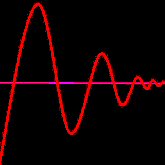















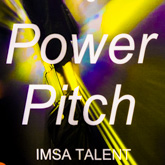
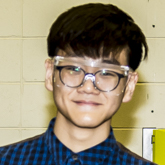











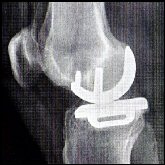
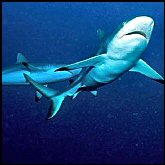



















































































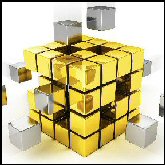












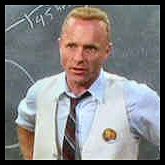































Pingback: CHECKBOXES FOR FUNDING | Chicago Venture Magazine